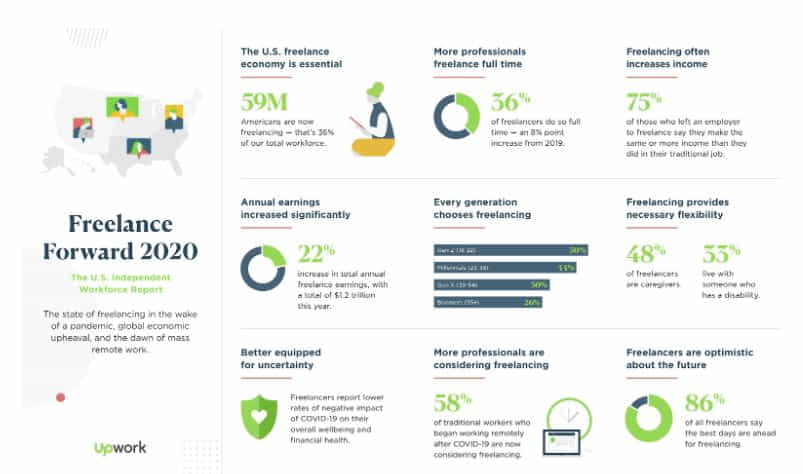The workforce is currently undergoing a massive change. Around the world, more and more people are becoming freelancers and leaving full-time employment behind completely. It has to be said that one of the main reasons why so many people have started working for themselves is the COVID-19 pandemic. Unfortunately, many people have lost employment and need a way to make money till the job market recovers.
This influx of freelancers and changes to regulations relating to self-employed people in multiple countries have made freelance management platforms a must. So, in this article, we’ll be walking you through exactly what a freelance management platform is and why it’s a game-changer—particularly in the rapidly evolving gig economy climate.
What is a Freelance Management Platform
This is a very important question, because how can you use something if you don’t know what it does? A freelance management platform is a type of system that manages information regarding the freelancers that work with your business. By making use of these freelance management systems, business owners are able to get an operational overview of their freelance workers including their relevant legal and financial information. This makes the process of managing freelancers much easier—there is less reliance on files and folders full of paper-based documents and the platform helps you optimize your freelance processes.
As we dive deeper into this article, you will see that the benefits of freelance management platforms are numerous. You can use these platforms to effectively manage your procurement process when looking for a new freelancer. This also means that you won’t have to spend as much time searching on multiple freelancer platforms. You can also save time when bringing on new people and cutting ties with others by automating the process using a freelance management platform. These systems also make paying freelancers easier as you’ll be able to pay them in their currency of choice using your own currency. After reading this, I’m sure you’re able to see why such a system could be useful for businesses that rely on freelancers.
More People Are Going Freelance
The data on this point is currently undeniable—more people are going freelance than ever before. The rate of freelancing was still quite low in 2014 at 17% of workers, before it started hovering between 25% and 29% between 2015 and 2019. Then, when it came to 2020, the share of freelancers shot up to 36%. With this sudden increase in the number of people that are freelancing, you’re going to need a good way to manage how you work with your freelancers. A lot of companies are still managing freelancers with spreadsheets and this just isn’t going to work going forward. A spreadsheet can’t keep up with such a constantly-changing environment.

From the above figures, it can be seen that the number of people going into freelancing shot up in 2015 and then stayed stagnant for a few years, gaining a little bit of ground but nothing massive. Then, the COVID-19 pandemic hit and rampant unemployment at a level unseen since the 2008 economic crisis shook the world. People started needing to freelance so that they could survive and the massive surge in the number of people freelancing clearly supports this conclusion.
Staying Compliant With Tax and Pay Regulations
If there’s another thing that freelance management platforms are good for, it’s making sure that you’re keeping on top of your tax and payments compliance. In recent times, the freelance market has seen some landmark cases—the Supreme Court ruling in the UK that declared Uber drivers to be employees rather than self-employed people. This entitled these workers to the statutory work benefits and a minimum wage. Regulators have noticed that companies often take advantage of self-employed people and fail to classify them as full-time employees in an effort to avoid tax and minimum wage responsibilities. Therefore, harsher penalties are being implemented.
Despite the fact that some businesses deliberately misclassify their workers, it also happens quite commonly by accident. These types of instances are only going to increase as more people begin to freelance and more companies begin to use their services as a result of this. This is another reason why it is important that you use a freelance management platform if your business regularly makes use of freelancers. If there’s one person you never want to annoy, it’s your auditor. So it’s probably best to just be safe rather than sorry.
Conclusion
In closing, we discussed what a freelance management platform is and how it is clear that freelance management systems are becoming a necessity because more people are moving towards freelancing due to the COVID-19 pandemic. Additionally, it’s not prudent to use spreadsheets to manage freelancers anymore and you also need to make sure that you’re in compliance with rapidly-changing legislation. Self-updating, automated systems will make the task a lot easier, error-free and efficient for business owners.
Written by Adam Eaton








